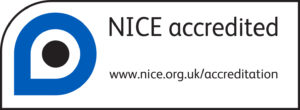 Summary
SummaryThese guidelines have been prepared by the Standards of Care Committee (SOCC) of the British Society for Allergy and Clinical Immunology (BSACI) and are intended for allergists and others with a special interest in allergy. As routine or validated tests are not available for the majority of drugs, considerable experience is required for the investigation of allergic drug reactions and to undertake specific drug challenge. A missed or incorrect diagnosis of drug allergy can have serious consequences. Therefore, investigation and management of drug allergy is best carried out in specialist centres with large patient numbers and adequate competence and resources to manage complex cases. The recommendations are evidence- based but where evidence was lacking consensus was reached by the panel of specialists on the committee. The document encompasses epidemiology, risk factors, clinical patterns of drug allergy, diagnosis and treatment procedures. In order to achieve a correct diagnosis, we have placed particular emphasis on obtaining an accurate clinical history and on the physical examination, as these are critical to the choice of skin tests and subsequent drug provocation. After the diagnosis of drug allergy has been established, communication of results and patient education are vital components of overall patient management.
aspirin, BSACI, classification of drug allergy, drug allergy, drug allergy, investigations, drug challenge, drug desensitization, drug intradermal tests, drug patch tests, drug provocation, drug skin prick, general anaesthetic, guidelines, local anaesthetic, muscle, relaxants, NSAID, penicillin, specific IgE drug testing, Standards of Care Committee, tryptase.
R. Mirakian, P. W. Ewan, S. R. Durham, L. J. F. Youlten, P. Dugué, P. S. Friedmann, J. S. English, P. A. J. Huber and S. M. Nasser